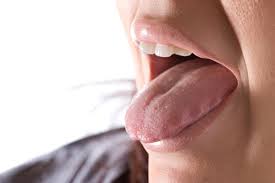 Dry mouth is when your mouth isn’t producing enough saliva to keep it moist. Dry mouth happens sometimes depending on your stress level, but sometimes dry mouth can be chronic and lead to serious health problems and a lot of discomfort. There are dry mouth remedies out there to lessen your dry mouth or completely get rid of it.
Dry mouth is when your mouth isn’t producing enough saliva to keep it moist. Dry mouth happens sometimes depending on your stress level, but sometimes dry mouth can be chronic and lead to serious health problems and a lot of discomfort. There are dry mouth remedies out there to lessen your dry mouth or completely get rid of it.
What is dry mouth?
Dry mouth can make it difficult to taste, chew, swallow, and speak. Dry mouth can also make you more susceptible to oral hygiene problems like dental decay, oral infections, and gum disease. Some medications and medical treatments can cause dry mouth, so if you think this might be why you have dry mouth, you should consult your physician to figure out the best remedy. In some cases, your prescriptions can be switched or your dosage lessened. Your doctor can also talk to you about other remedies.
Not sure if you have dry mouth? Symptoms include:
- Sticky, dry feeling in mouth
- Trouble chewing, swallowing, tasting, and speaking
- Burning feeling in mouth
- Dry feeling in throat
- Cracked lips
- Dry, rough tongue
- Mouth sores
- Mouth infection
Why is saliva important?
Saliva doesn’t just keep your mouth wet. Saliva helps your digestive system and protects teeth from tooth decay. It also controls bacteria in the mouth and makes it possible to chew and swallow. It stops the cause of infections and discomfort.
Causes of dry mouth
Dry mouth happens when the salivary glands aren’t working properly, which can happen for many reasons, such as:
- Side effects of medications. About 500 medications on the market can cause dry mouth. Medications that treat depression, high blood pressure, anxiety, epilepsy, Parkinson’s disease, Alzheimer’s, and many other are known to cause dry mouth. If you are on a medication that causes dry mouth, talk with your doctor about switching medications or other remedies.
- Some diseases have negative effects on the salivary glands, such as Sjogren’s syndrome, HIV/AIDS, and diabetes.
- Medical treatments. Some medical treatments are known to damage the salivary glands, causing dry mouth. These treatments include chemotherapy and radiation.
- Nerve damage. Injury to the head or neck can damage nerves that affect the production of saliva.
Dry mouth remedies
Depending on the reason for your dry mouth, there are ways to remedy the problem. If you think your might have dry mouth, visit your doctor or dentist. They can help you determine the cause f your dry mouth and recommend the best course of treatment.
If your dry mouth is due to medication, your doctor might be able to switch you to a medication that doesn’t cause dry mouth.
If your salivary glands aren’t damaged but you are still having trouble producing saliva, your doctor can recommend treatment that might help, such as special mouthwashes and natural remedies.
If your salivary glands are damaged, your doctor or dentist might recommend artificial saliva.
There are also ways you can help your dry mouth at home.
- Stay hydrated and avoid sugary drinks
- Avoid drinks with caffeine or acidity
- Sip water while eating to help making chewing and swallowing easier
- Chew sugarless gum and suck on sugar free candies to stimulate the flow of saliva
- Don’t use tobacco or drink alcohol, as they dry out the mouth more
- Avoid spicy or salty foods
- Sleep with a humidifier to keep moisture in the air while you sleep
Keeping your teeth healthy is a good step to avoid dry mouth. Be sure to:
- Brush your teeth at least twice a day, especially after meals and before bed
- Floss your teeth daily
- Use a fluoride toothpaste and mouthwash
- Avoid sticky and sugary foods, brushing after consumption if you do eat them
- Visit your dentist at least twice a year to keep your teeth clean and your mouth healthy
